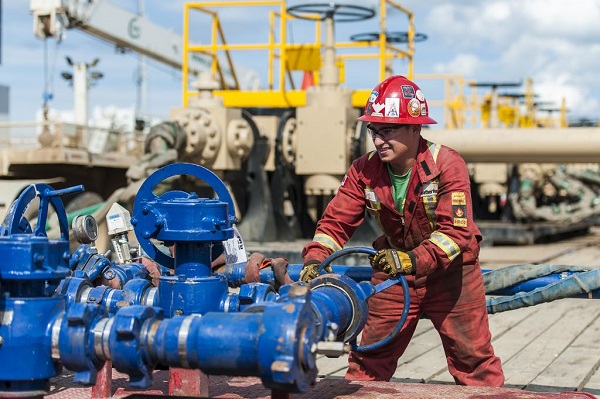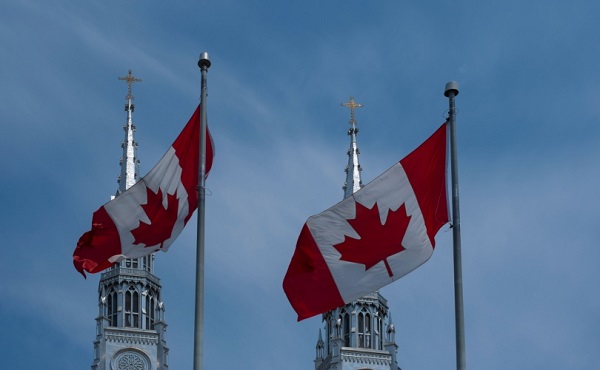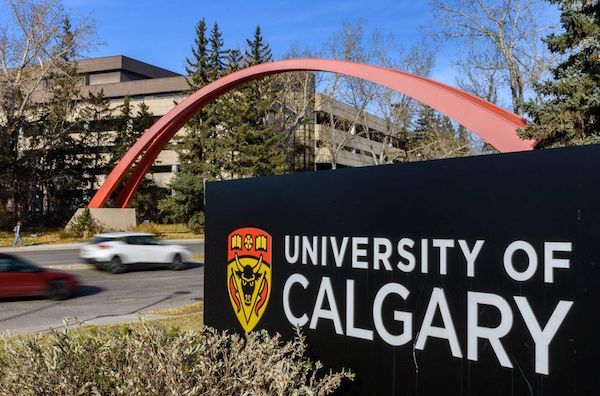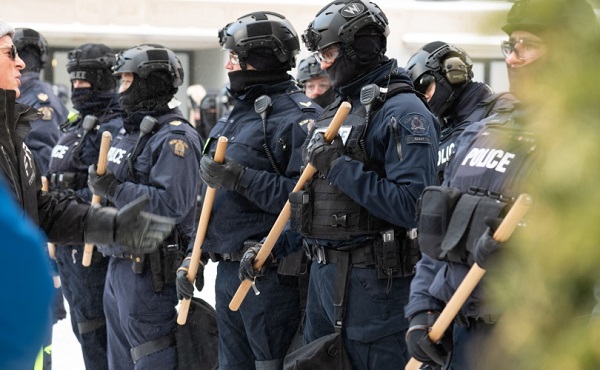Business
Debunking the myth of the ‘new economy’

From Resource Works
Where the money comes from isn’t hard to see – if you look at the facts
In British Columbia, the economy is sometimes discussed through the lens of a “new economy” focused on urbanization, high-tech innovation, and creative industries. However, this perspective frequently overlooks the foundational role that the province’s natural resource industries play in generating the income that fuels public services, infrastructure, and daily life.
The Economic Reality
British Columbia’s economy is highly urbanized, with 85% of the population living in urban areas as of the 2021 Census, concentrated primarily in the Lower Mainland and the Capital Regional District.
These metropolitan regions contribute significantly to economic activity, particularly in population-serving sectors like retail, healthcare, and education. However, much of the province’s income—what we call the “first dollar”—originates in the non-metropolitan resource regions.
Natural resources remain the backbone of British Columbia’s economy. Industries such as forestry, mining, energy, and agriculture generate export revenue that flows into the provincial economy, supporting urban and rural communities alike. These sectors are not only vital for direct employment but also underpin metropolitan economic activities through the export income they generate.
They also pay taxes, fees, royalties, and more to governments, thus supporting public services and programs.
Exports: The Tap Filling the Economic Bathtub
The analogy of a bathtub aptly describes the provincial economy:
- Exports are the water entering the tub, representing income from goods and services sold outside the province.
- Imports are the water draining out, as money leaves the province to purchase external goods and services.
- The population-serving sector circulates water within the tub, but it depends entirely on the level of water maintained by exports.
In British Columbia, international exports have historically played a critical role. In 2022, the province exported $56 billion worth of goods internationally, led by forestry products, energy, and minerals. While metropolitan areas may handle the logistics and administration of these exports, the resources themselves—and the wealth they generate—are predominantly extracted and processed in rural and resource-rich regions.
Metropolitan Contributions and Limitations
Although metropolitan regions like Vancouver and Victoria are often seen as economic powerhouses, they are not self-sustaining engines of growth. These cities rely heavily on income generated by resource exports, which enable the public services and infrastructure that support urban living. Without the wealth generated in resource regions, the urban economy would struggle to maintain its standard of living.
For instance, while tech and creative industries are growing in prominence, they remain a smaller fraction of the provincial economy compared to traditional resource industries. The resource sectors accounted for nearly 9% of provincial GDP in 2022, while the tech sector contributed approximately 7%.
Moreover, resource exports are critical for maintaining a positive trade balance, ensuring that the “economic bathtub” remains full.
A Call for Balanced Economic Policy
Policymakers and urban leaders must recognize the disproportionate contribution of British Columbia’s resource regions to the provincial economy. While urban areas drive innovation and service-based activities, these rely on the income generated by resource exports. Efforts to increase taxation or regulatory burdens on resource industries risk undermining the very foundation of provincial prosperity.
Furthermore, metropolitan regions should actively support resource-based industries through partnerships, infrastructure development, and advocacy. A balanced economic strategy—rooted in both urban and resource region contributions—is essential to ensure long-term sustainability and equitable growth across British Columbia.
At least B.C. Premier David Eby has begun to promise that “a new responsible, sustainable development of natural resources will be a core focus of our government,” and has told resource leaders that “Our government will work with you to eliminate unnecessary red tape and bureaucratic processes.” Those leaders await the results.
Conclusion
British Columbia’s prosperity is deeply interconnected, with urban centres and resource regions playing complementary roles. However, the evidence is clear: the resource sectors, particularly in the northern half of the province, remain the primary engines of economic growth. Acknowledging and supporting these industries is not only fair but also critical to sustaining the provincial economy and the public services that benefit all British Columbians.
Sources:
- Statistics Canada: Census 2021 Population and Dwelling Counts.
- BC Stats: Economic Accounts and Export Data (2022).
- Natural Resources Canada: Forestry, Mining, and Energy Sector Reports.
- Trade Data Online: Government of Canada Export and Import Statistics.
Business
Conservative MPs denounce Liberal plan to strip charitable status of pro-life, Christian groups

From LifeSiteNews
Conservative MPs presented a petition in Parliament defending pro-life charities and religious organizations against a Liberal proposal to strip their charitable tax status.
Conservative MPs presented a petition calling for the rejection of the Liberals’ plan to strip pro-life charities and places of worship of their charitable status.
During the September 16 session, Conservative Members of Parliament (MPs) Andrew Lawton, Jacob Mantle, and Garnett Genuis defended pro-life charities and places of worship against Liberal recommendations to remove the institutions’ charitable status for tax purposes.
“I have received from houses of worship across this country so much concern, reflected in this petition, that these recommendations are fundamentally anti-free speech and anti-religious freedom,” Lawton told Parliament. “The petitioners, and I on their behalf, advocate for the complete protection of charitable status regardless of these ideological litmus tests.”
Similarly, Mantle, a newly elected MP, added that Canadians “lament that some members opposite are so blinded by their animus towards charitable organizations that they would seek to undermine the good works that these groups do for the most vulnerable Canadians.”
Religious charities provide care and compassion to the most vulnerable in our society, but some members of the Liberal and New Democratic parties are so blinded by their animus towards religion and faith that they are actively seeking to revoke the charitable status of ALL… pic.twitter.com/O12rkw3pJ0
— Jacob Mantle (@jacobmantle) September 16, 2025
Finally, Genuis, who officially presented the petition signed by hundreds of Canadians, stressed the importance work accomplished by religious and pro-life organizations.
“(R)eligious charities in Canada provide vital services for society, including food banks, care for seniors, newcomer support, youth programs and mental health outreach, all of which is rooted in their faith tradition, and that singling out or excluding faith charities from the charitable sector based on religious belief undermines the diversity and pluralism foundational to Canadian society,” he explained.
As LifeSiteNews previously reported, before last Christmas, a proposal by the all-party Finance Committee suggested legislation that could strip pro-life pregnancy centers and religious groups of their charitable status.
The legislation would amend the Income Tax Act and Income Tax. Section 429 of the proposed legislation recommends the government “no longer provide charitable status to anti-abortion organizations.”
The bill, according to the finance department, would require “registered charities that provide services, advice, or information in respect of the prevention, preservation, or termination of pregnancy (i.e., destroying the unborn)” to disclose that they “do not provide specific services, including abortions or birth control.”
Similarly, Recommendation 430 aims to “amend the Income Tax Act to provide a definition of a charity which would remove the privileged status of ‘advancement of religion’ as a charitable purpose.”
Many Canadians have warned that the proposed legislation would wipe out thousands of Christian churches and charities across Canada.
As LifeSiteNews reported in March, the Canadian Conference of Catholic Bishops (CCCB) appealed to the Liberal government to rethink the plan to strip pro-life and religious groups of their tax charity status, stressing the vital work done by those organizations.
Business
The Real Reason Tuition Keeps Going Up at Canada’s Universities

Since 2020, steep increases to tuition fees have triggered large-scale protests by the students who pay those fees at the University of Alberta, University of Calgary, University of British Columbia and at McGill University and Concordia University in Quebec, among many other schools. (A freeze on tuition fees in Ontario since 2019 explains that province’s absence from the list.)
It’s true that tuition has been on the rise. According to Statistics Canada , between 2006-2007 and 2024-2025, the average undergraduate full-year tuition fee at a Canadian university grew from approximately $4,900 to $7,360.
But do the students really know what’s behind the increases?
University administrators looking to deflect responsibility like to blame provincial government cutbacks to post-secondary funding. Here, the evidence is unconvincing. Going back two decades, nationwide full-time equivalent (FTE) student transfer payments from provincial governments have remained essentially constant, after accounting for inflation. While government grants have remained flat, tuition fees are up.
The issue, then, is where all this extra money is going – and whether it benefits students. Last year researcher and consultant Alex Usher took a close look at the budgeting preferences of universities on a nationwide basis. He found that between 2016-2017 and 2021-2022 the spending category of “Administration” – which comprises the non-teaching, bureaucratic operations of a university – grew by 15 percent. Curiously enough “Instruction,” the component of a university that most people would consider to be its core function, was among the slowest growing categories, at a mere 3 percent. This top-heavy tendency for universities is widely known as “administrative bloat”.
Administrative bloat has been a problem at Canadian universities for decades and the topic of much debate on campus. In 2001, for example, the average top-tier university in Canada spent $44 million (in 2019 dollars) on central administration. By 2019 this had more than doubled to $93 million, supporting Usher’s shorter-term observations. Usher calculated that the size of the non-academic cohort at universities has increased by between 85 percent and 170 percent over the past 20 years.
While some level of administration is obviously necessary to operate any post-secondary institution, the current scale and role of campus bureaucracies is fundamentally different from the experience of past decades. The ranks of university administration used to be filled largely with tenured professors who would return to teaching after a few terms of service. Today, the administrative ranks are largely comprised of a professional cadre of bureaucrats. (They are higher paid too; teaching faculty are currently paid about 10 percent less than non-academic personnel.)
This ever-larger administrative state is increasingly displacing the university’s core academic function. As law professor Todd Zywicki notes, “Even as the army of bureaucrats has grown like kudzu over traditional ivy walls, full-time faculty are increasingly being displaced by adjunct professors and other part-time professors who are taking on a greater share of teaching responsibilities than in the past.” While Zywicki is writing about the American experience, his observations hold equally well for Canada.
So while tuition fees keep going up, this doesn’t necessarily benefit the students paying those higher fees. American research shows spending on administration and student fees are not correlated with higher graduation rates. Canada’s huge multi-decade run-up in administrative expenditures is at best doing nothing and at worst harming our universities’ performance and reputations. Of Canada’s 15 leading research universities, 13 have fallen in the global Quality School rankings since 2010. It seems a troubling trend.
And no discussion of administrative bloat today can ignore the elephant in the corner: diversity, equity and inclusion (DEI). Writing in the National Post, Peter MacKinnon, past president of the University of Saskatchewan, draws a straight line from administrative bloat to the current infestation of DEI policies on Canadian campuses.
The same thing is going on at universities across Canada that have permanent DEI offices and bureaucracies, including at UBC, the University of Calgary, University of Waterloo, Western University, Dalhousie University and Thompson Rivers University. As a C2C Journal article explains, DEI offices and programs offer no meaningful benefit to student success or the broader university community. Rather, they damage a school’s reputation by shifting focus away from credible scientific pursuits to identity politics and victimology.
With universities apparently unable to restrain the growth of their administrative Leviathan, there may be little alternative but to impose discipline from the outside. This should begin with greater transparency.
Former university administrator William Doswell Smith highlights a “Golden Rule” for universities and other non-profit institutions: that fixed costs (such as central administration) must never be allowed to rise faster than variable costs (those related to the student population). As an example of what can happen when Smith’s Golden Rule is ignored, consider the fate of Laurentian University in Sudbury, Ontario.
In early 2021 Laurentian announced it was seeking bankruptcy protection under the Companies’ Creditors Arrangement Act, under which a court-appointed manager directs the operations of the delinquent organization. Laurentian then eliminated 76 academic programs, terminated 195 staff and faculty, and ended its relationships with three nearby schools.
Ontario’s Auditor-General Bonnie Lysak found that the primary cause of the school’s financial crisis were ill-considered capital investments. The administrators’ big dreams essentially bankrupted the university.
The lesson is clear: if universities refuse to correct the out-of-control growth of their administrations, then fiscal discipline will eventually be forced upon them. A reckoning is coming for these bloated, profligate schools. The solution to higher tuition is not increasing funding. It’s fewer administrators.
The original, full-length version of this article was recently published in C2C Journal.
Jonathan Barazzutti is an economics student at the University of Calgary. He was the winner of the 2nd Annual Patricia Trottier and Gwyn Morgan Student Essay Contest co-sponsored by C2C Journal.
-

 Alberta1 day ago
Alberta1 day agoSylvan Lake high school football coach fired for criticizing gender ideology sends legal letter to school board
-

 Energy1 day ago
Energy1 day agoA Breathtaking About-Face From The IEA On Oil Investments
-

 Alberta2 days ago
Alberta2 days agoParents group blasts Alberta government for weakening sexually explicit school book ban
-

 COVID-191 day ago
COVID-191 day agoFreedom Convoy leader slams Canadian gov’t agency for praising its treatment of protesters
-

 Frontier Centre for Public Policy2 days ago
Frontier Centre for Public Policy2 days agoBloodvein Blockade Puts Public Land Rights At Risk
-

 Business2 days ago
Business2 days agoOttawa’s so-called ‘Clean Fuel Standards’ cause more harm than good
-

 International2 days ago
International2 days agoFrance records more deaths than births for the first time in 80 years
-

 National2 days ago
National2 days agoChrystia Freeland resigns from Mark Carney’s cabinet, asked to become Ukraine envoy



